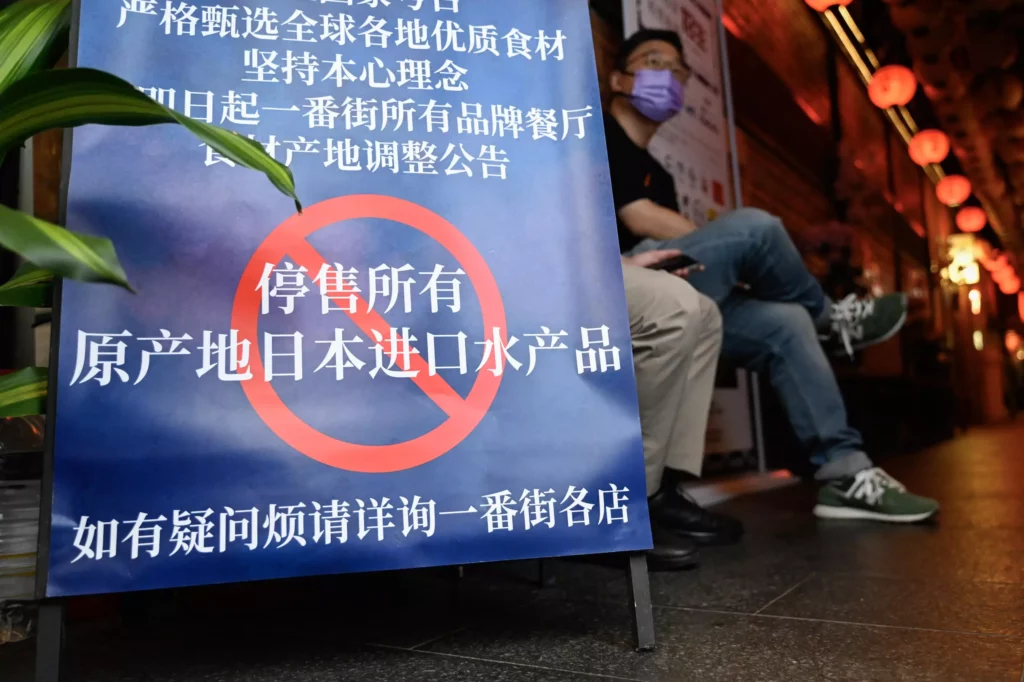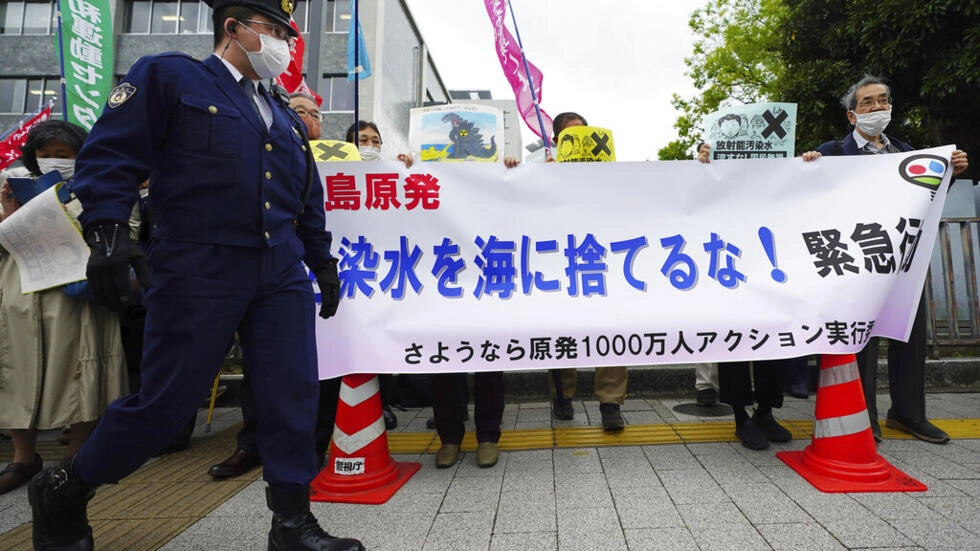The Japanese Embassy in China said on Tuesday (29) that it was “extremely concerned” about a wave of attacks in front of its offices and threats by telephone since the start of the controversial operation to dump water from the Fukushima nuclear power plant into the Pacific Ocean last Thursday (24). The release was authorized by the International Atomic Energy Agency (IAEA), but displeased Beijing.
RFI
Despite previous concerns expressed by fishermen and strong opposition from China, which immediately tightened its trade sanctions against Tokyo, Japan maintained the dumping. The case has also generated great popular commotion, leading to the arrest last week of demonstrators protesting outside the Japanese embassy in Seoul. In the Japanese capital, the protests took place in front of Tepco, the company that operates the Fukushima plant.
“Of course we are sorry and extremely concerned. We call on the Chinese government, in accordance with international law, to provide security at the embassy and consulates in China, including some facilities related to Japan, and for Japanese citizens,” the embassy spokesman said in a statement.
The acts against Japanese people attributed to China since the beginning of the dumping of Fukushima water into the sea are “extremely regrettable and worrying”, Japanese Foreign Minister Yoshimasa Hayashi also said, confirming that civilians had thrown bricks at the Japanese embassy in Beijing.
He asked the Chinese government to “immediately take appropriate measures, calling on its citizens to act calmly to prevent the situation from escalating”. Tokyo summoned the Chinese ambassador to Japan on Monday to protest against China’s wave of attacks on Japanese companies.
Sanctions and revolt

Beijing has suspended all seafood imports from Japan since last week, in response to the start of the dumping of water used to cool the nuclear reactors at the damaged Fukushima Daiichi plant.
In an interview with RFI, Karoline Postel-Vinay, a researcher at the Center for International Research (CERI) at Sciences Po, an expert on East Asia and author of the book “Japan’s Silent Revolution”, said that despite the IAEA’s validation in favor of releasing the water into the sea, “Japanese fishermen have contested [the scientific decision], there are US scientists who also contest it, but clearly it has become a matter of political domination”, adding that the tension has become a “geopolitical twist in China”.
The expert puts the reasons into context based on the pre-existing tensions between the US and China and the fact that Japan is a US ally. “China is trying to intimidate and destabilize Japan. And we mustn’t forget that in an authoritarian country like China, this can be an internal political resource for the Chinese,” which would turn public opinion against Japan, something positive for Chinese politicians, according to the researcher.
This Sino-Japanese tension over the case of the treated Fukushima water can be seen as a mass strategy that governs the international scene to a certain extent. In addition, Postel-Vinay argues that there are also internal political points, since China “finds itself in a degraded economic situation”, the issue directs the spotlight in such a way that it makes the “Chinese nation can get closer”. And that’s why it would be in China’s interest to “fuel this tension”.
“With an authoritarian regime like Xi Jinping’s today, there are decisions that are not at all rational on an economic level (…) This is what happens in China, not only in relation to Japan, but in other decision-making sectors that are not necessarily for the benefit of the population,” she summarized.
She believes that tensions, mainly related to the current anti-Japanese attacks, including cases of xenophobia and the brick attack on the embassy, “may go off the rails a bit, but I think there will be a time when each side will realize that it’s very dangerous [to continue with tensions],” she concluded.
